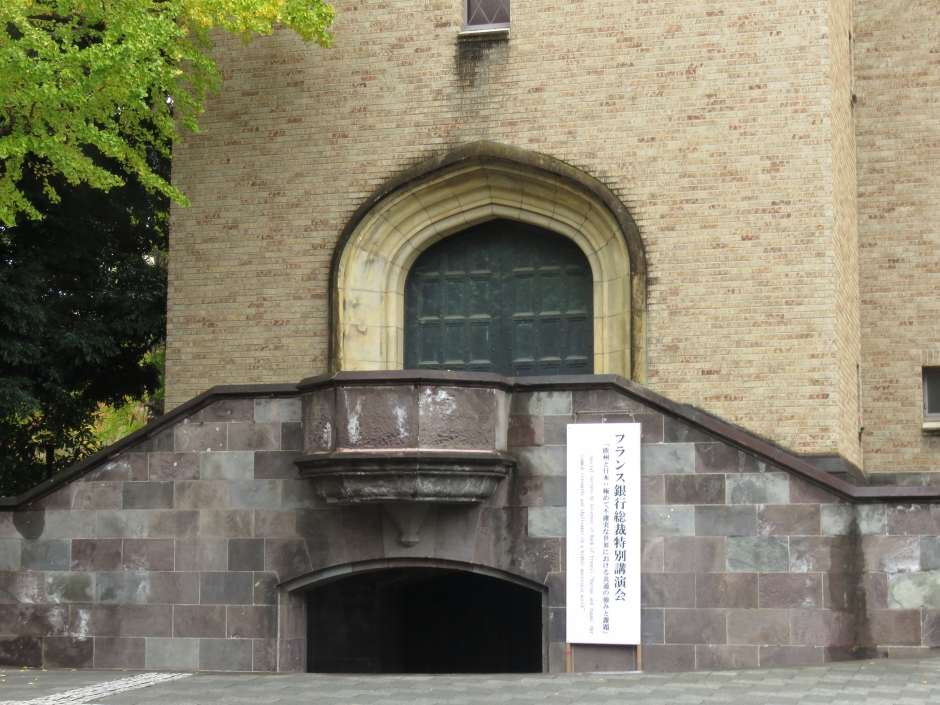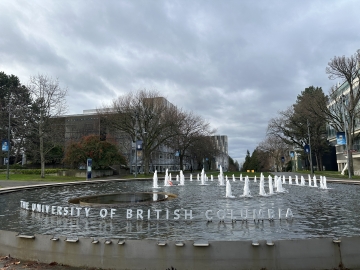On November 15, 2022, the Top Global University Project of the Center for Positive/Empirical Analysis of Political Economy, in collaboration with the Faculty of Political Science and Economics, welcomed Mr. François Villeroy de Galhau, Governor of the Bank of France, to give a lecture entitled “Europe and Japan: Our common strengths and challenges in a highly uncertain world.”
In his lecture, Governor Villeroy de Galhau pointed out that Europe and Japan are implementing financial and economic policies in response to their respective economic conditions, in the face of accelerating inflation, worsening terms of trade, and other challenges amid increased uncertainty caused by various external shocks, such as the pandemic, disruptions in global supply chains, and Russia’s invasion of Ukraine. He also discussed how structural issues that Europe and Japan face should be addressed.
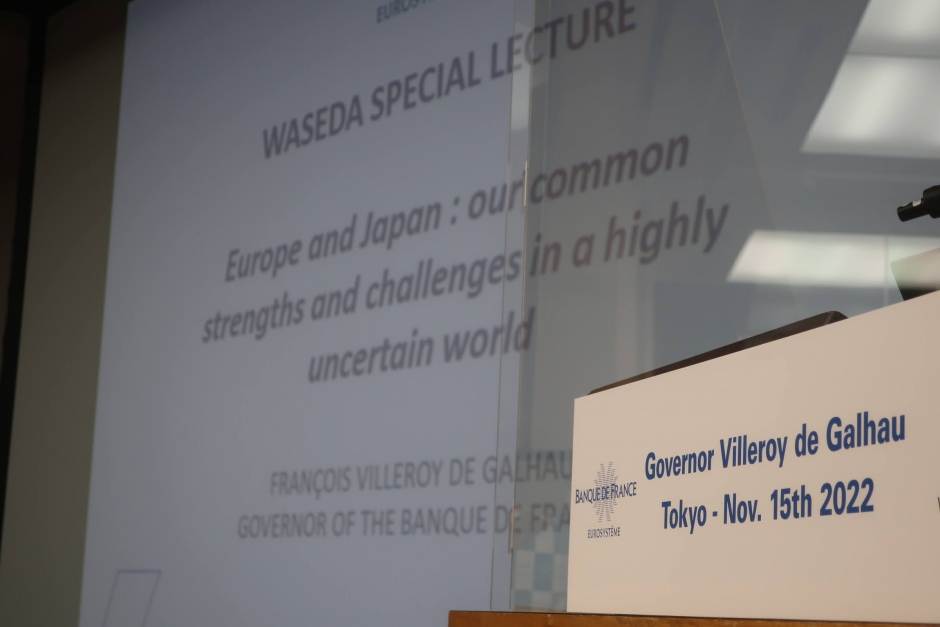
University President Aiji Tanaka, in his opening remarks, said “Waseda University regards the Republic of France as one of its most important partners in terms of international exchange. Currently, Waseda University has executed academic exchange agreements with 58 higher education institutes in France.” He added “Today, as the environment surrounding the global economy is becoming increasingly complex, solving basic problems is becoming difficult.” Then he commented that this lecture would provide students, who would be responsible for the globalized society of the future, with useful suggestions on actions they should take in response to common challenges.
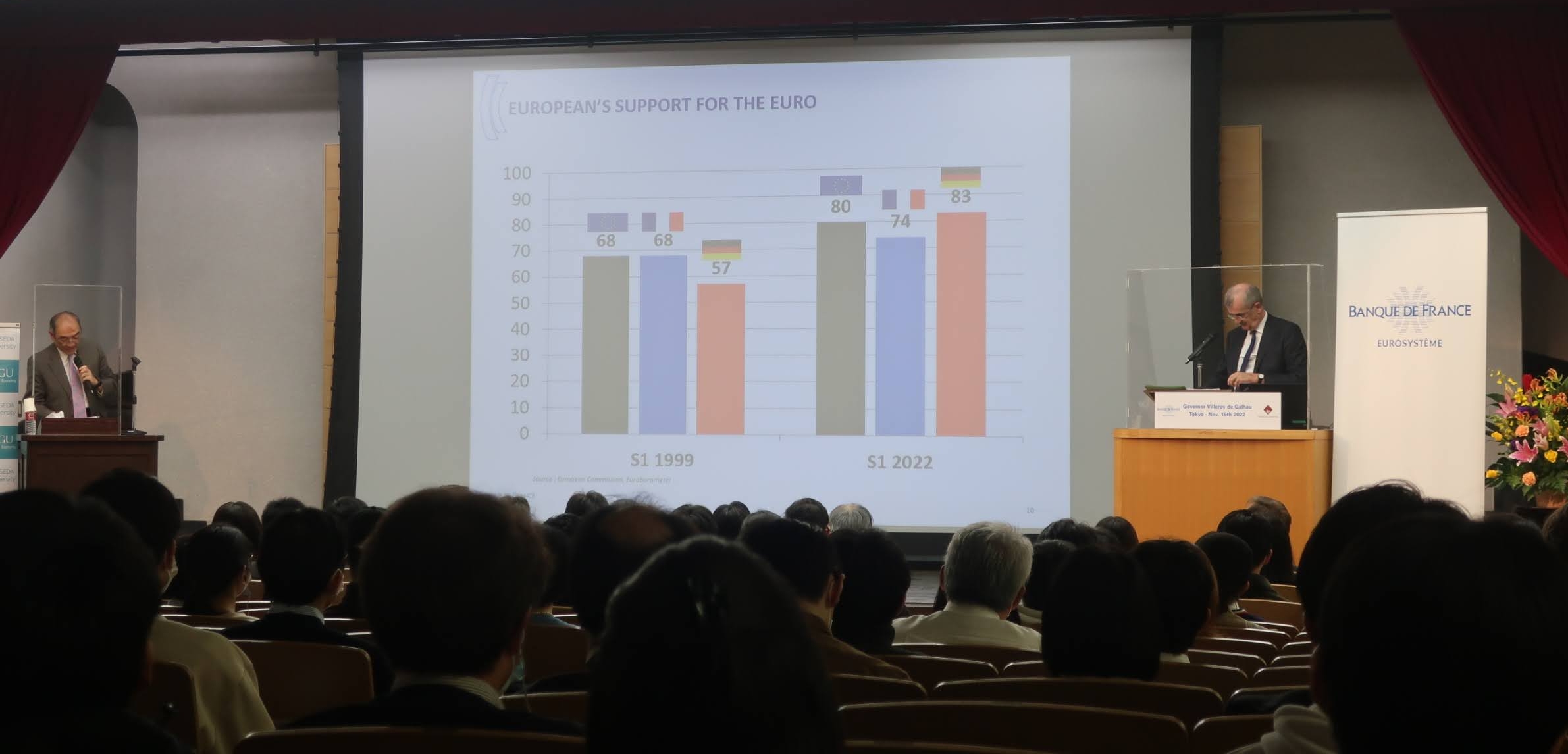
Professor Shizume (left), Faculty of Political Science and Economics, introduced the Governor (right).
Governor Villeroy de Galhau identified the structural challenges facing Japan and Europe as: stagnant potential growth rate, inadequate labor supply, the climate transition, and rising debt in both the government and private sectors. He also pointed out that Europe and Japan have a common strength in addressing these difficult issues, citing the famous Japanese fairy tale “Momotaro”: (1) having a long-term perspective rooted in long history and culture (Europe and Japan were compared to the pheasant in Momotaro); (2) having experienced social progress with infrastructure and public services (the dog); and (3) being able to lead multifaceted discussions based on universal values, namely human rights, law and order, and democracy (the monkey).
Governor Villeroy de Galhau also stated that Europe should learn from Japan in terms of: culture (manga, simplicity, and sophistication), efforts to address energy supply issues after the unfortunate Fukushima accident, and innovations such as robotization. He also emphasized that while Europe’s resilience had been underestimated, Europe was the primary model for international cooperation, citing the success of the Euro currency, the realization of a vast single market within the EU, and rapid decision-making in dealing with climate change, crypto assets, etc.
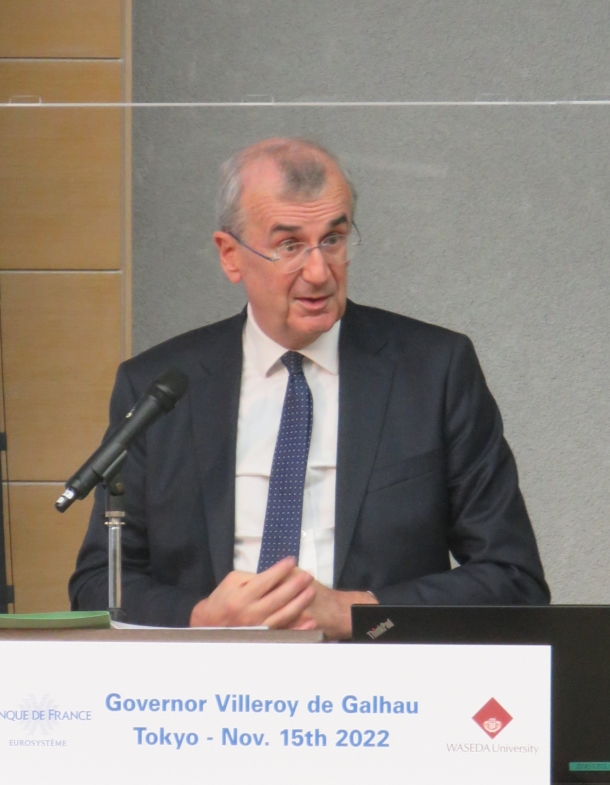
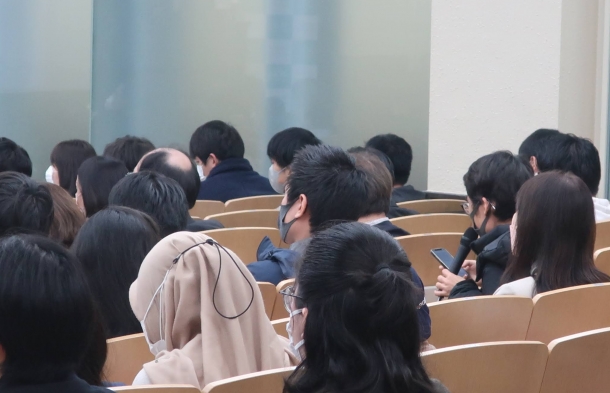
Governor Villeroy de Galhau concluded his lecture by quoting from Soseki Natsume’s “Kokoro”:
“Words are not meant to stir the air only: they are capable of moving greater things.”
This lecture attracted a large audience of over 200 people, filling the small auditorium of the Okuma Auditorium, and the Q&A session following the lecture was a lively discussion.
